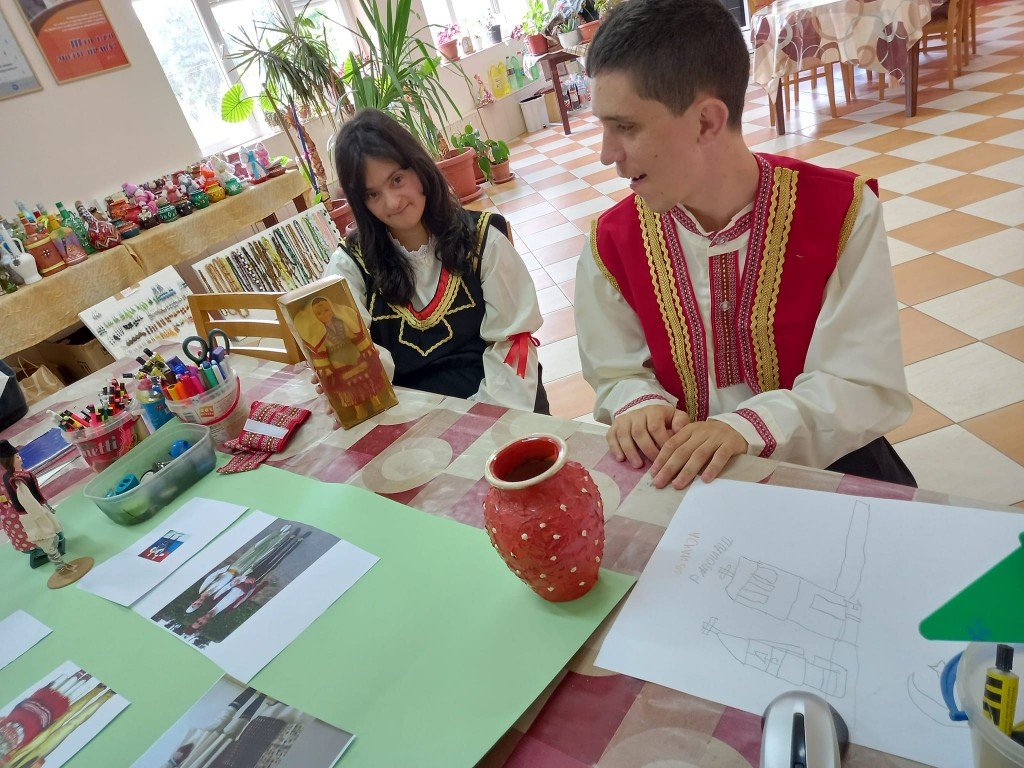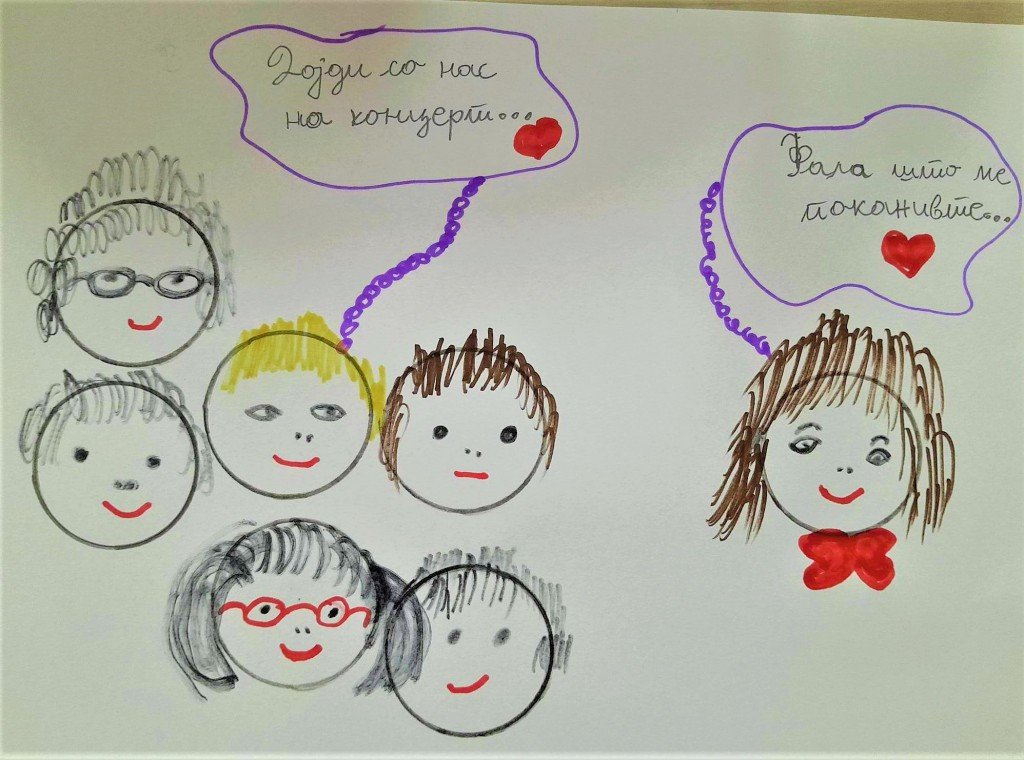The Republic Centre for Support of Persons with Intellectual Disability – PORAKA in cooperation with the Association “Halfway There” from Serbia and SUMERO from Bosnia and Herzegovina started the implementation of the project Intercultural Learning for All in January 2023. This project is based on the long-term experience of all three project partners in the field of social inclusion, development of skills of persons with intellectual disability in terms of occupational therapy, creativity, self-advocacy skills, intercultural learning, and tolerance.
The main goal of the project foresees active participation of persons with intellectual disability as the self-advocates who are overcoming stereotypes, prejudices and barriers through intercultural learning and contributing to the good neighbouring relations in the region. Additionally, the project envisages to contribute to the regional cooperation by engaging persons with intellectual disability in the intercultural dialogue, promoting their integration and establishing connections among people in general.
The project activities were regularly implemented in the past period. Emphasise was given to realisation of thematic workshops. The educators and the users in the Day Centres of the Republic Centre for Support of Persons with Intellectual Disability – PORAKA were actively involved in conduction the workshops, in which topics from discrimination, prejudices, stereotypes and overcoming them.
The workshops on discrimination included discussions regarding personal experiences with discrimination, discussions about the types of discrimination, as well as the areas in which persons with disability are most often discriminated. In order to bring the topic closer to the users of the day centres, video materials, pictures and examples were used describing the different types of discrimination. In a similar manner, the workshops aimed for prejudices and stereotypes regarding persons with disabilities were also conducted. During the workshops for ways of overcoming and dealing with discrimination and discriminatory behaviour, the role of the Commission for Prevention and Protection from Discrimination was discussed in more detail and how this Commission can help with discriminatory behaviour towards individuals or groups of people.
Several interesting messages arose from these workshops, which were conveyed by the users. For example:
- It is a shame to call me “special” nowadays, I don’t know why when I have the same needs as all other people.
- Discrimination hurts … It hurts when they are looking at me with mockery, when they avoid me and just pity me.
- We also have talents, but people rarely recognise them, they think that we are not capable for anything.
- When you don’t know me, don’t judge according to my appearance, you have to know me to see that we are all the same even though we look different.
- All children mocked me at school for being slower than them, the teachers didn’t pay enough attention to me, so my parents had to transfer me to special school.
At the same time, several conclusions were also made:
- Discrimination, stereotypes, and prejudice towards persons with intellectual disability are still present in our communities.
- They prevent persons with intellectual disability from realising their human rights, potentials, and opportunities.
- Therefore, it is necessary to fight discrimination in all possible ways.
The workshops will continue in the following period as well, and will include topics like culture, tradition and customs, and nonviolent communication. Additionally, culinary workshops will be conducted for preparing dishes specific for the three countries included in the project.
Also, a manual is being prepared in which all themes discussed during the workshops shall be included and shall serve to multiply these project activities in the wider community.
The project “Intercultural Learning for All” is finances by the Western Balkans Fund (WBF) with support of the European Union within the Call for Regional Project Proposals “Support to the Promotion of Civil Society regional actions in the Western Balkans”.








